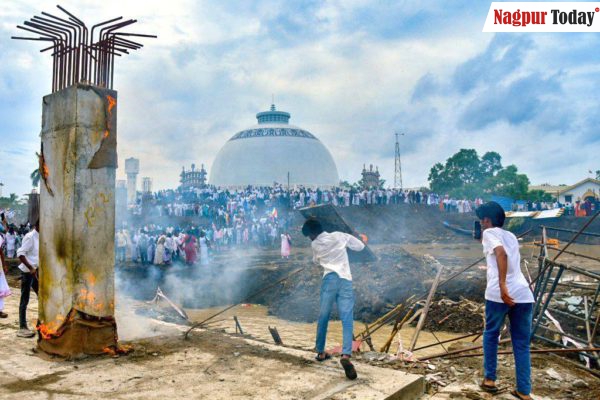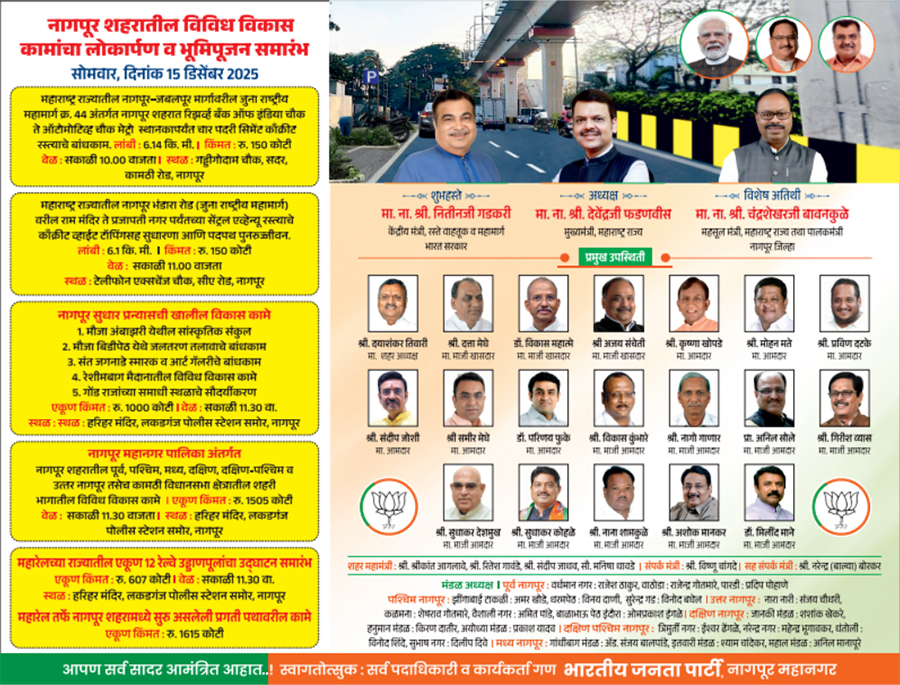Nagpur: In the wake of violent protests, the Nagpur Improvement Trust (NIT) has decided to abandon the controversial underground parking project at Deekshabhoomi. This decision was reached during a recent meeting with the Dr. Ambedkar Smarak Samiti. The issue also ignited significant backlash and discussions in the Maharashtra Assembly.
The protests erupted on July 1, when thousands of people from various Ambedkarite organizations gathered at Deekshabhoomi to oppose the ongoing construction of the underground parking. They claimed that the project threatened the sanctity of the Stupa and the Bodhi Tree. The issue was strongly raised by the Opposition benches, led by Maha Vikas Aghadi (MVA) constituents, in the Assembly. They cornered the State Government, demanding an immediate halt to all construction activities.
According to a NIT official, the trust has decided to abide by the Samiti’s decision. NIT has sent a proposal to the Maharashtra Government and is waiting for its approval.
Dr. Ambedkar Smarak Samiti Secretary Rajendra Gavai blamed a section of Ambedkarite followers for the protests. He revealed that the Samiti had decided to abandon the current development and beautification plan in favour of a new one.
He further mentioned that during the meeting with NIT officials, it was decided to cancel all proposed underground structures like the museum and auditorium mentioned in the original plan. “We will also fill up the site where the underground parking was being constructed. Our target is to level the site within the next 15-20 days after receiving the Government’s approval,” Gavai stated.
Gavai also noted the significant expenditure incurred on the underground parking project, estimated to be around Rs 20-22 crore, which would now be wasted. He emphasized the importance of restoring the site before this year’s ‘Dhammachakra Pravartan Din’ celebration at Deekshabhoomi in October. “We do not want to wait till then, and the levelling work will be done on a war footing. The decision was taken after considering the sentiments of the people,” he added.

















